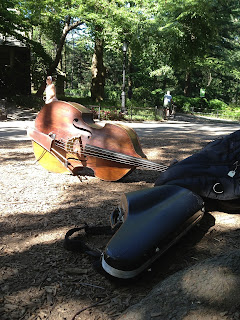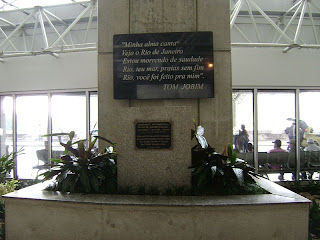Leadsheet: "Motion" ("You Stepped Out of a Dream")
.png)
The first track on the Stan Getz record Early Stan (1949, 1953) is a Jimmy Raney tune called "Motion" that features a Tristano-ish line over the changes of "You Stepped Out of a Dream"). I know the Getz-Raney collaboration primarily through The Complete Roost Sessions (1950-2), a 3-CD set that includes Getz and Raney's live recordings at Storyville ("Parker 51," a burning performance over "Cherokee" changes, is particularly notable). Incidentally, it would have been Raney's 86th birthday last Tuesday, which I learned from his son Jon's tribute website . I can't think of any other lines over "You Stepped Out of a Dream," but this would be a fine one to play at sessions! C Bb Eb



